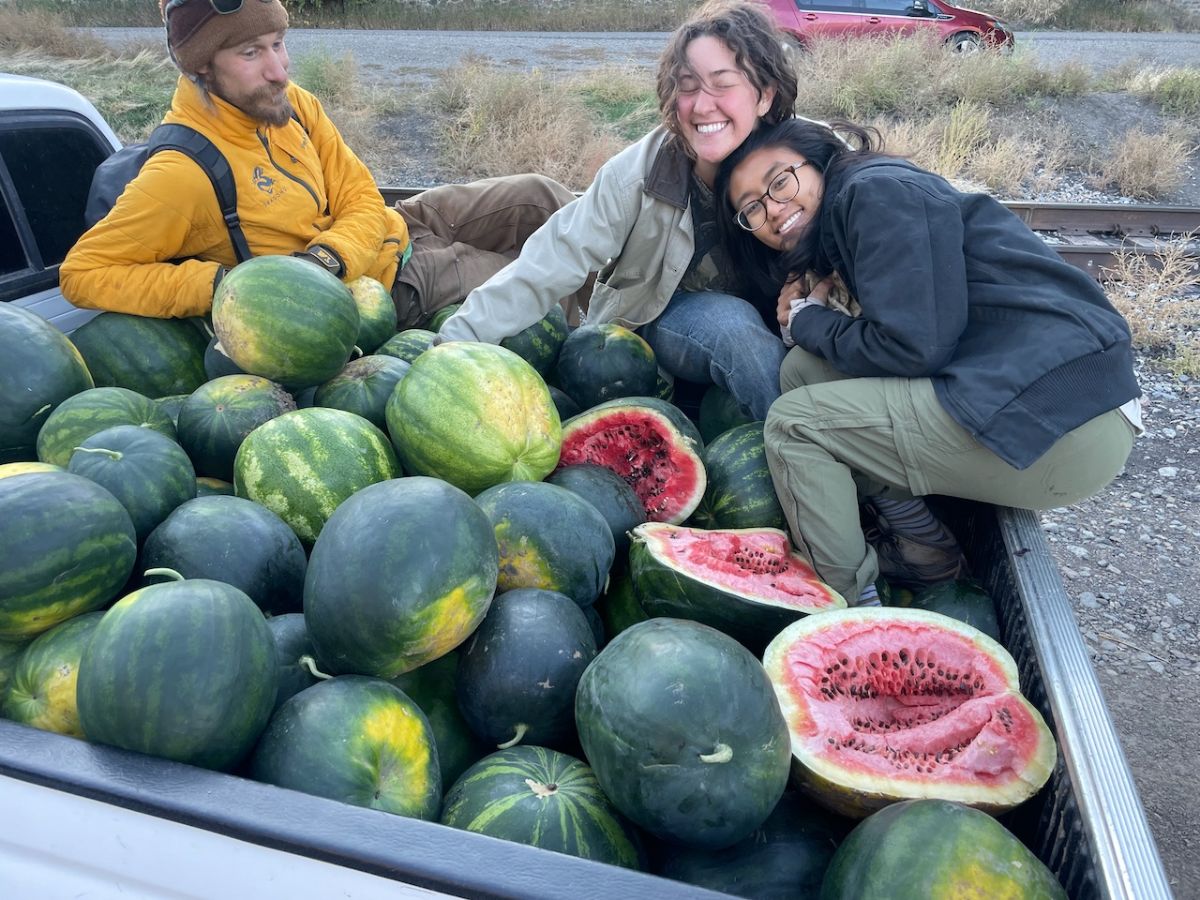
A word on mental health in local agriculture and how you can support
I want to write a few words about mental health in local food systems. Casey’s suicide has been overwhelming, partially because of the loss of such a visionary person and partially because in our agricultural community, there are most certainly people who have walked close to that edge and felt alone and unsupported during at their lowest moments.
Small-scale organic farmers are being squeezed—crushed rather—between the economic pressures of a hyper-industrialized food system and the risky challenges of growing food for uncertain local markets in a changing climate. We choose this work not to get rich, but to work for the earth and for healthy futures. Farming a vocation that requires so much scientific and economic expertise, yet agriculture is some the worst-paid work around. Farmers are experts on our local ecosystems. Ask any vendor at your local farmers market when the first Western Meadowlark sings in spring, and we will compare this year’s timing with each of the last five years. We know how the geology of our regions created local soil types, how the wind blows at different times of day, which edible weeds are more delicious than the vegetables we grow (it’s a secret), and how the National Weather Service forecast is wrong for each part of our fields. Small-scale farmers do it all: we are botanists and bookkeepers, machinists and scientists, retail clerks and cookbook authors. And we spend so many hours stooped over in the heat picking vegetables.
Small-scale farms are under pressure from consumers to produce more, charge less, and do it all with a smile. We’re supposed to be the faces of hope for a sustainable food system. The competition is intense: it’s hard to make a few thousand tomato plants on a small farm compete with the San Joaquin Valley’s 125,000 acres of tomatoes. There’s so much uncertainty: one late freeze, a bad grasshopper year, or an erratic windstorm could throw everything off-balance for a farm.
Our current food system is a recipe for a mental health crisis, and many farmers struggle. Timing is everything in farming, and farmers often have the feeling that they can’t take a break, or they’ll fall behind at a crucial time. A missed planting window can mean thousands of dollars lost. There’s no slack in the system, but slack is what people need to maintain mental health.
Local, small-scale farms are a key part of a viable future. With all the pressures farmers face, we need more support from our communities.
How to support your local farmers:
The easiest way: Join a CSA. Community Supported Agriculture (CSA) is a system where customers buy a weekly produce box, paying in advance for the whole growing season. Farmers typically choose what goes in the box. If it’s a good year, you might get more than your money’s worth. If a hurricane hits, you might get nothing. For the Groundwork farm, we can say that the combination of up-front investment, shared risk, and willingness to eat whatever is growing well eases the biggest sources of stress and uncertainty.
Lend a hand on a farm during the hardest time of year. Small-scale farmers do a lot by hand. Mid-summer (June and July) on our farm is when the overwhelm sets in. Days are long and hot, and weeds grow so fast. There’s only so many hours a person can work. Ask your local farmer what they need during this time of year. Is it a 10-person weeding crew to spend 3 hours taking care of the grass that’s overtaking the carrots? Is it somebody to help them pack up a farmers market stand for 30 minutes every week? Maybe it’s a plate of cookies or a tub of ice cream during the biggest planting week of the year. Maybe it’s a pro-bono lawyer, a truck to borrow while theirs is in the shop, or a spare room where a temporary worker could live during harvest. Good local food systems need to be just that: systems. Everybody can be part of it, at least a little.
Become friends with your farmer. So much of the mental health conversation in our country focuses on professional help in times of crisis. We live in an isolating society that is wrestling with the isolating influences of technology. People have never lived so isolated as the average American, and according to the US Surgeon General, loneliness is as deadly as smoking. Plus, being friends with farmers means you’ll have great food in your life 😉
Eat local and eat what’s in season. It’s going to be more expensive, at least for now. That’s ok—your farmer isn’t getting rich, but your community will be better off.
Mental health resources for farmers:
- You. The best thing you can do for somebody in crisis is to be there.
- Not Our Farm — a farmworker storytelling collaborative where mental health and burnout are common topics.
- Rocky Mountain Farmers Union AgWell Program
- 988 Lifeline: The National Suicide & Crisis Lifeline